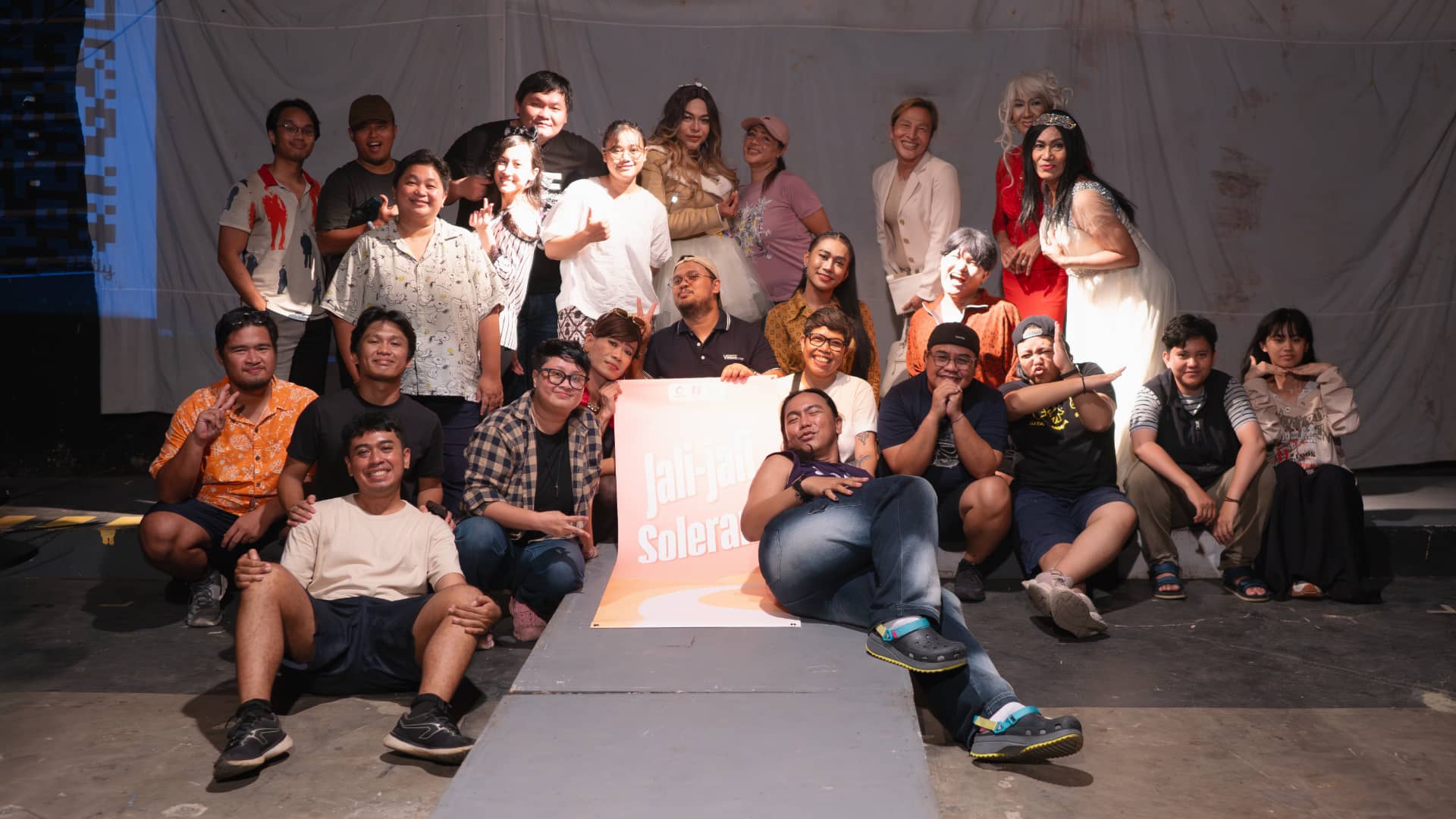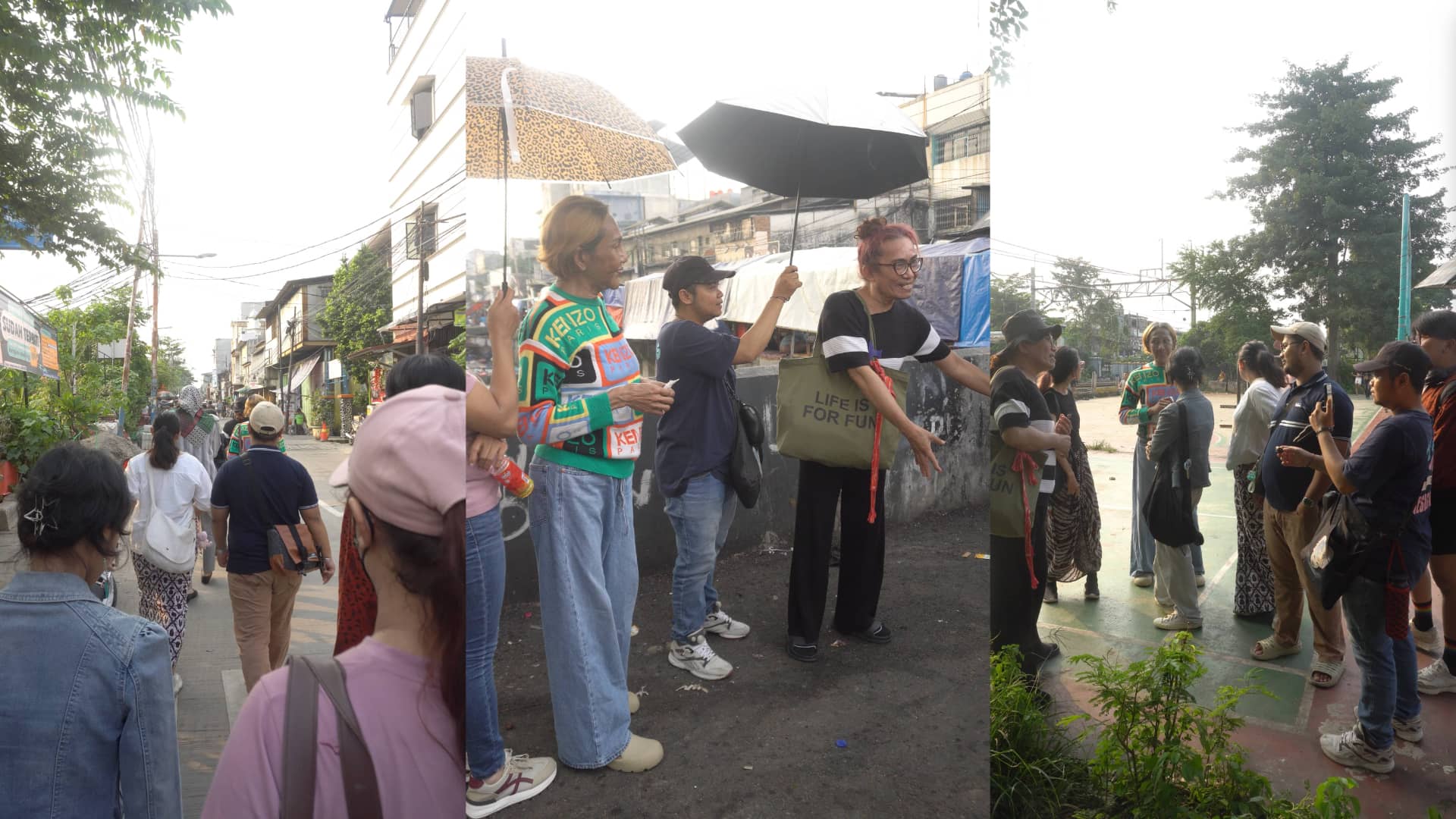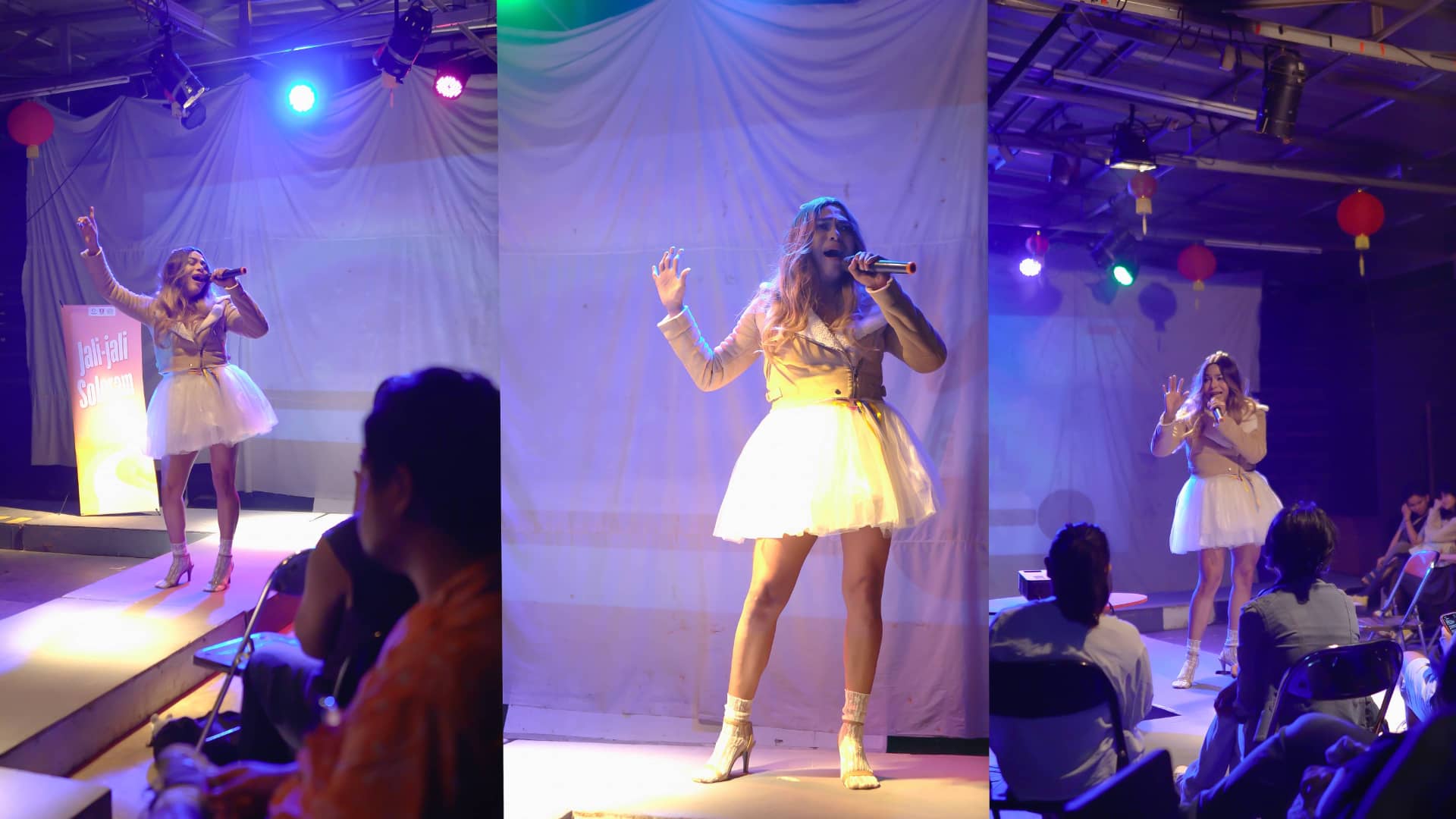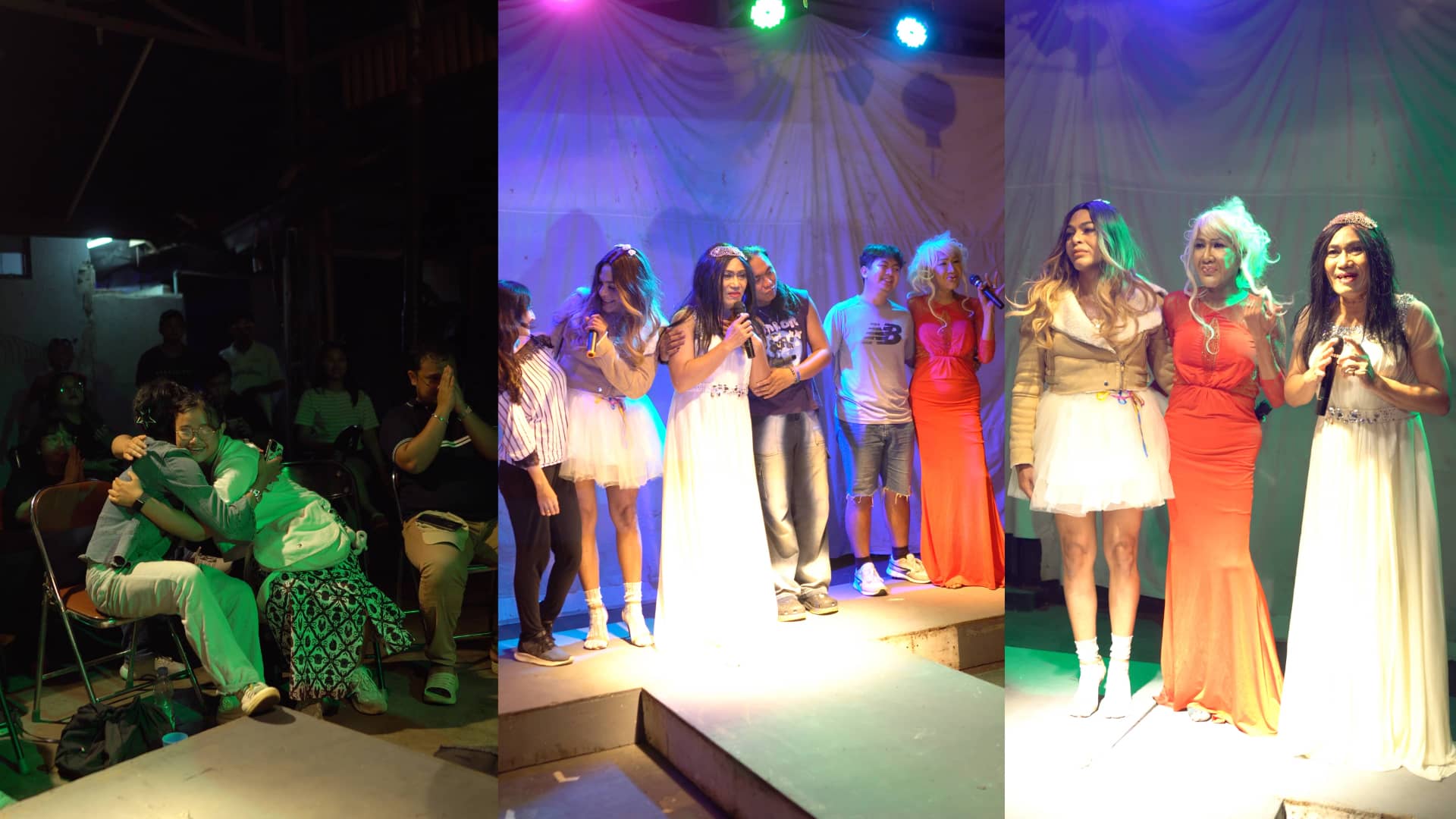
Written by: Riska Carolina, Advocacy Officer, ASEAN SOGIE Caucus
Jali-Jali Soleram 2.0: Stories from the Edges of the City
At the end of May 2025, the sound of boomboxes and footsteps of participants filled the late afternoon in Kampung Duri. The narrow streets and alleys that once silently witnessed the struggles of the transwomen community are now alive again. The sound were not because of evictions or dispersals, but because of the Jali-Jali Soleram 2.0, an event that is part of the commemoration of the International Day Against Homophobia, Transphobia, and Biphobia (IDAHOBIT). Anchored on the theme "The Power of Communities", the event brought closer the stories to the communities being both a site of empowerment and resistance.
Organized by the ASEAN SOGIE Caucus together with Queer Language Club (QLC) Jakarta and Teater Manekin on May 31, 2025, this event took the form of a walking tour tracing the historic spaces of the transwomen community, from Stasiun Duri to the markets and alleys around it, culminating in film screenings and art performances in a safe space for Kampung Duri's transwomen creatives.
From Localization to Collectivity
Jali-Jali Soleram was first held as a fundraising effort for the transwomen community affected by the pandemic and economic marginalization. Now, with the support of communities and organizations, the second edition has become a more open, free, and festive celebration. Yet the core spirit remains the same: providing space for transwomen friends to share stories, preserve memories, and build solidarity.
Participants were invited to trace the social spaces once used as places to earn a living and interact. Erika and Wanti, transwomen from Teater Manekin and also part of Kampung Duri’s residents, shared their stories about Stasiun Duri in the 1980s. "Back then it was a swamp; even at 9 p.m. it was still dangerous because of gangs. But since we were brave transwomen, we fought back or approached them to get familiar," said Erika.
The area around the station, including the Sinar cinema and Taman Angsa, used to be a place where transwomen who worked as sex workers gathered and worked. Now, these spaces have changed. The localization was disbanded, salons owned and frequented by transwomen were closed, and many were forced to move after intimidation from residents. "I used to carry just one bag because I was afraid of raids", Wanti tearfully recalled.
A persecution incident occurred in 2012, triggered by provocateurs who incited residents with narratives that the presence of transwomen brought disaster. Tensions peaked when a market fire happened and the transwomen community was scapegoated. Residents threatened forcible eviction, even involving hardline groups. Wanti bitterly recalled, "They said, if you don't leave here, we will forcibly remove you" Many transwomen ended up leaving Kampung Duri, some returning to their hometowns. But after the provocateurs passed away, the atmosphere gradually became more conducive, and the community began rebuilding through the arts collective now known as Teater Manekin.
Fighting Stigma and Building Support

The tour took participants through narrow alleys now mostly inhabited by transwomen. One of the highlighted places was "Gang Banci" (a derogatory term to call queer and trans people in Indonesia)—an old nickname now replaced by a more neutral name by residents. In one unexpected moment, a child around 4 or 5 years old shouted "banci" as the group passed through the alley. Immediately, an older child reprimanded, "Hey, don't say that, they are from this Kampung too!" Participants witnessing this moment noted it as a small but meaningful sign, that appreciation for diversity can grow even from an early age.
Along the way, participants met Mak Edo, a local figure who rents out boomboxes and cheap rooms for transwomen. "If you rent from me, I guarantee safety; these are our people here", she said. Mak Edo is known as an important ally and protector of the Kampung Duri transwomen community. Tour participants often saw transwomen carrying boomboxes with matching colors around Kampung Duri—these were Mak Edo’s rentals.
Participants also inquired about government assistance during the pandemic. Despite often lacking ID cards, many transwomen here can still live and work thanks to relationships with local RT/RW (Neighborhood/Community Unit)—the Kampung leaders. "Pak RT helps with ID cards", said Erika. When the pandemic struck, aid mostly came from civil society organizations, not the government. It is truly regrettable because in times of crisis, the state should be present for all citizens, including those often overlooked.
The absence of the state encouraged the Kampung Duri transwomen community to look after each other and create self-support systems, from food provision to daily needs. This is concrete evidence of how grassroots solidarity operates faster and more sincerely than bureaucracy, which is often complicated. Nevertheless, the solidarity network lives on.
Voices of Participants: Reflections and Impressions

Before the event’s closing, participants of the walking tour shared their impressions and testimonies, proving that Jali-Jali Soleram 2.0 is not merely a collaboration but a deeply personal experience.
"Walking around Kampung Duri and learning from the experiences of transwomen was very meaningful. Many stories I had never heard before," wrote one participant. Another added, "This tour connected me to my own group's history, which I rarely knew. Truly heartwarming. Walking the land."
Some expressed emotional reactions to the performances: "I was pulled to the front by a transwomen performer. I loved that I could still have fun while resisting", Another participant said, "Manekin’s lipsync was amazing. It was my first time seeing transwomen showing diva energy on stage. They said before there was electricity on Earth, transwomen from Kampung Duri were already shining!"
For some, the most memorable moment was intergenerational connection and felt solidarity: "I especially loved connecting with friends from this community. I cherish this safe space".
Another participant concluded, "I felt so happy, there was closure at the end of the event. I was touched and hugged my friend. This is queer joy".
Art, Memories, and Spaces That Endure

The film was screened during dinner, and the event closed with a performance by Teater Manekin. The closing was informal, filled with deep emotion, as participants and community members embraced in silent expressions of love and solidarity. Tears and warm hugs slowly gave way as participants began to leave the space, but the stories and bonds forged remain. This collective, born from social pressures and crackdowns, has helped the transwomen community organize and persist. Amid laughter and tears, they presented stories born from pain yet forged by resilience.
Jali-Jali Soleram 2.0 is not only about remembering the past but about restoring physical and symbolic spaces for communities that have long survived on the margins. The stories from Kampung Duri remind us that the power of community lives in shared narratives, solidarity, and the courage to keep moving forward despite narrow and winding roads.
This is the real embodiment of the theme “The Power of Communities”—that through togetherness, communities can heal wounds, create safe spaces, and affirm their presence in a city that continually changes.



